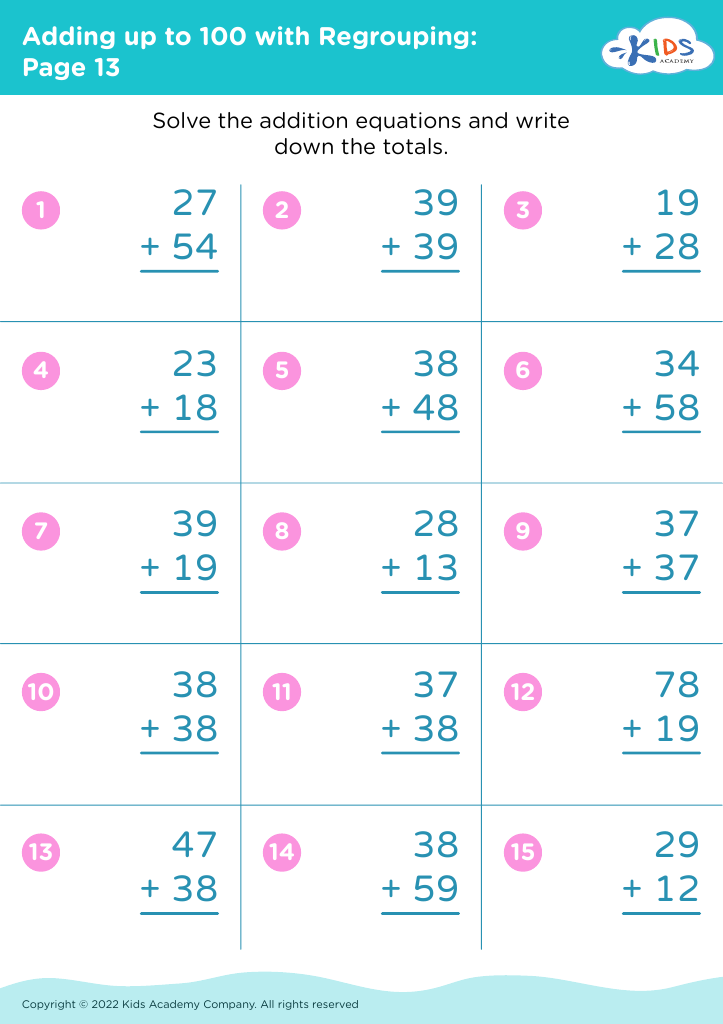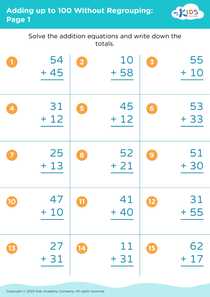Basic Math Skills Adding up to 100 with Regrouping Worksheets for Ages 5-7
3 filtered results
-
From - To
Discover engaging "Adding Up to 100 with Regrouping" worksheets designed for young learners aged 5-7. These fun and interactive resources help children develop essential math skills as they master addition techniques up to 100, including the important concept of regrouping. Each worksheet encourages practice and boosts confidence, ensuring that kids can tackle math problems with ease. Perfect for classroom use or at-home learning, our worksheets align with early education standards, making math enjoyable and accessible. Explore a variety of exercises to challenge and inspire your young mathematicians as they build a strong foundation for future math success!
Basic math skills, particularly adding up to 100 with regrouping, are crucial for children aged 5-7 as they lay the foundation for future mathematical comprehension. At this early age, children are developing critical thinking and problem-solving abilities, and strong mathematical skills foster these essential cognitive processes. Understanding addition concepts, including regrouping, helps children learn how to manage and manipulate numbers effectively, which is vital for their everyday life.
Furthermore, mastering these skills enhances children’s confidence in their abilities, contributing positively to their overall motivation toward learning. When students become comfortable with addition and regrouping, they are better prepared to tackle more complex math concepts in the future, such as subtraction, multiplication, and division, laying the groundwork for advanced problem-solving skills.
Encouraging practice in basic math empowers children to think logically and fosters an appreciation for mathematics. By actively engaging with these concepts, parents and teachers create an environment that values learning and resilience. Ultimately, by emphasizing the importance of basic math skills, we shape proficient learners who can navigate more substantial concepts later in their education and in real-world situations, leading to a lifetime of success in math and beyond.














